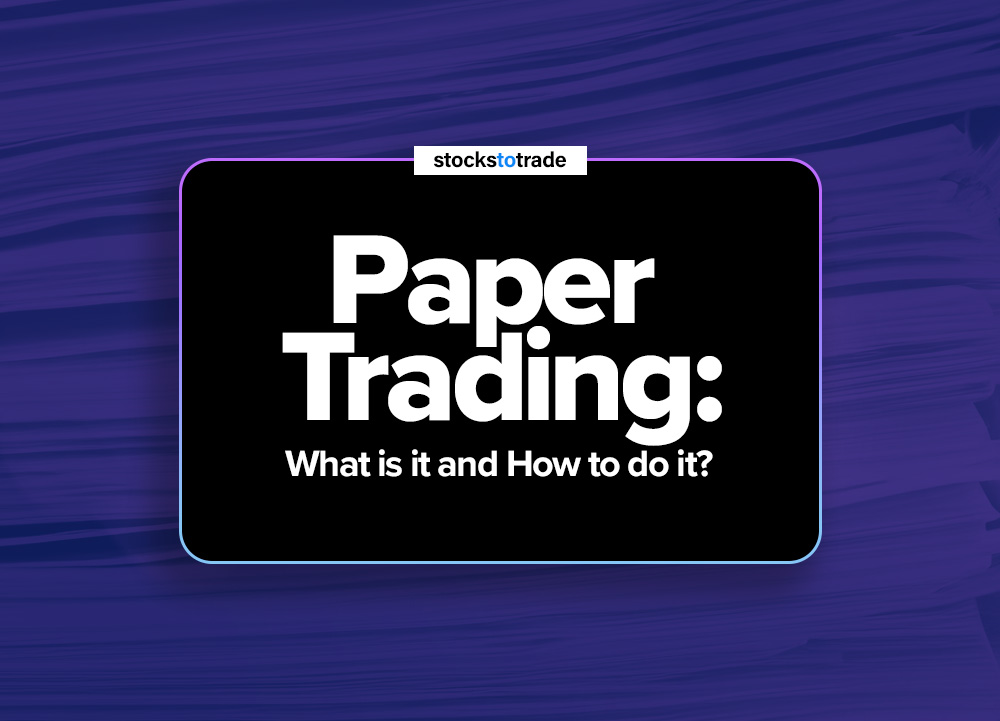What actually is Net Paper Account Value on Webull?

Investing in the stock market may be a daunting experience, especially for those who are unfamiliar with its complexities and possible risks. Thank goodness, websites like Webull offer a solution with their paper trading accounts. With these accounts, individuals can trade virtual currency and have a risk-free environment to develop and improve their trading skills. This talk will cover a wide range of topics related to paper trading on Webull, including what net paper account value is, how it changes, and the many features and limitations that come with paper trading accounts. This compilation will enable the best possible paper trading experience on Webull, regardless of your level of experience with investing or whether you’re an experienced trader exploring new tactics.
Deciphering Net Paper Account Value on Webull
The net paper account value on Webull epitomizes the aggregate worth of your hypothetical investments within the paper trading account. This encompasses the cumulative sum of cash and the valuation of any equities or other securities you hold. Imagine it as the total value of your simulated portfolio. It functions like a virtual balance sheet, reflecting the performance of your investment’s sans real monetary involvement.
Upon initializing a paper trading account on Webull, you are endowed with a predetermined quantum of virtual funds for trading purposes. This initial quantum constitutes your nascent net paper account value. As you execute trades, procure stocks, and witness market oscillations, this value will vacillate akin to a genuine trading account. This simulation imparts a realistic comprehension of the ramifications of your trading decisions on your overarching portfolio value.
Why and How to Use a Paper Trading Account
A paper trading account’s primary function is to be an educational tool. It makes it easier to simulate realistic trading situations without running the risk of real money loss. This renders it an exceptional medium for apprehending stock market mechanics, experimenting with varied strategies, and accruing trading confidence devoid of fiscal peril. For beginners, it stands as an indispensable resource for grasping trading fundamentals; for adept traders, it offers a sandbox to refine novel ideas and strategies sans monetary risk.
Teaching Tool:
A paper trading account provides novice investors with a hands-on way to learn about the stock market. It offers understanding of the workings of different order kinds, how market swings affect investments, and the experience of managing a portfolio.
Refining Trading Strategies:
Skilled traders frequently utilize paper trading accounts to evaluate and enhance novel trading approaches. Before using these tactics in the actual market, they might be adjusted after being observed in a risk-free setting.
Boosting Confidence:
Trading can be intimidating, particularly at first. A paper trading account aids in bolstering confidence in trading decisions, permitting mistakes and learning experiences without financial repercussions.
Market Acclimatization:
Markets are inherently volatile and unpredictable. Paper trading cultivates familiarity with market dynamics and elucidates the effects of economic indicators and news events on stock prices.
To get more knowledge about activities regarding Finance then click here.
Dynamics of Net Paper Account Value
The net paper account value mirrors the fluctuations of a real trading account. It ascends when your investments appreciate or when you divest a security at a profit. Conversely, it descends if your investments depreciate or you sell at a deficit. It is susceptible to market movements and trading activities. For instance, procuring well-performing stocks elevates your net paper account value, whereas their devaluation diminishes it.
Factors Influencing Net Paper Account Value:
Market Movements:
Stock prices oscillate in response to market conditions, economic news, corporate performance, and sundry factors, impacting the valuation of stocks in your paper trading account.
Trading Decisions:
Your trading maneuvers—buying and selling securities—directly affect the net paper account value. Profitable trades augment the account value, while unprofitable ones diminish it.
Dividends:
Stocks disbursing dividends will add these payments to your net paper account value, simulating actual dividend receipts.
Fees and Commissions:
Some paper trading accounts emulate the effect of trading fees and commissions, reducing your net paper account value akin to real accounts.
Retractions:
Your paper trading account does not allow you to take money out because it uses virtual currency. The main goal is to offer a risk-free trading environment with no actual financial consequences.
Transfers:
You cannot transfer your net paper account value to your real trading account. The funds and value within a paper trading account are entirely virtual and segregated from real money accounts, dedicated solely to practice.
Real Money Trading:
Paper trading accounts exclusively utilize virtual money. To engage in real money trading, a real trading account is requisite. Paper trading is confined to learning and practice.
Negative Account Value:
If your net paper account value turns negative, it signifies losses exceeding your initial virtual funds. This hypothetical situation functions as an educational tool by emphasizing the dangers of trading and the fallout from making hasty financial choices. Examine errors and adjust tactics to prevent the same problems in the future.
Account Reset:
On sites such as Webull, you have the option to reset your paper trading account. This enables a fresh start with a new virtual money balance, useful for experimenting with different strategies or recovering from significant losses.
Performance Tracking:
Platforms like Webull provide tools to monitor paper trading performance over time, aiding in the analysis of trades, profits, and losses. This facilitates the continuous refinement of trading strategies.
Limitations:
Despite its advantages, paper trading accounts have limitations. Emotional detachment, divergent market conditions, skewed risk perception, and hypothetical profits can impact decision-making and expectations. Recognizing these constraints is crucial for a balanced approach to learning and practice.
Multiple Accounts:
Opening multiple paper trading accounts is feasible, allowing the testing of diverse strategies or management of different virtual portfolios concurrently. This multiplicity aids in comparative analysis and strategy optimization.
Cost-Free Usage:
Paper trading accounts on Webull are free, requiring no real money deposits. This cost-free platform offers a valuable opportunity to acclimate to trading environments and market dynamics without financial commitment.
Conclusion
Paper trading on Webull is an invaluable asset for both novices and veteran traders. It furnishes a safe, risk-free environment for stock market education, strategy experimentation, and confidence building. By comprehending the net paper account value, tracking performance, and acknowledging limitations, users can maximize their paper trading experience. Whether you’re exploring new strategies or just beginning, Webull’s paper trading account is a pragmatic tool for skill enhancement and real-world trading preparation. Leverage this feature to adeptly navigate the stock market’s complexities with augmented confidence and sagacity.
